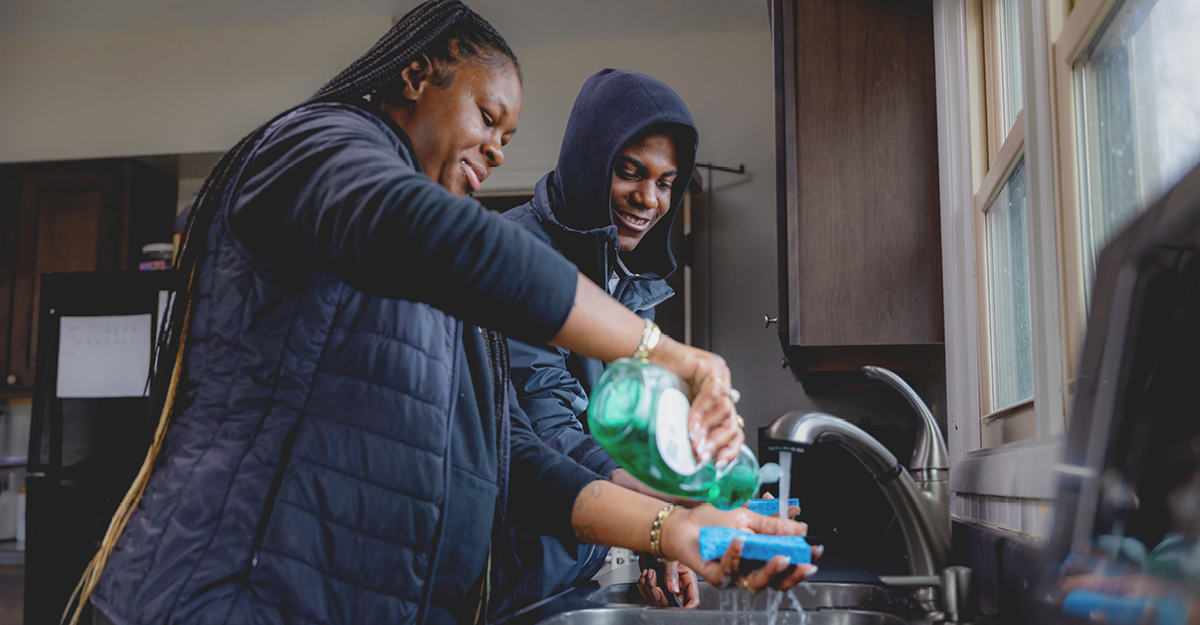
Learning to live independently
For many young people in SAL, independence isn’t a milestone that comes naturally; it’s a learned skill developed through consistent guidance and opportunity. The program provides a supportive environment for youth who are old enough to live on their own but still benefit from additional structure and resources as they take their first steps toward self-sufficiency.
Ellipsis offers two types of SAL:
- Cluster SAL: Youth ages 16.5 to 21 live in apartments with their own kitchens, bathrooms and bedrooms — a setup similar to what they would have in adulthood — while still maintaining a safety net from Ellipsis.
- Scattered SAL: Participants ages 17 to 21 live more independently in their own off-campus apartments, with a roommate or other trusted adults, while having weekly or biweekly check-ins with their Ellipsis caseworker.
On or off campus, young people in SAL are active members of our community. They go to school, work and spend time with people they care about. Think of our staff as resident advisors in a college dorm: there to answer questions and give direction, not do the work for them.
Why Ellipsis SAL success rates are rising
According to our 2024 Annual Report, both Cluster and Scattered SAL have higher successful discharge rates than the year prior, with Cluster increasing 27%. In 2023, 91% of youth were successfully discharged from Scattered SAL, and in 2024, we’re proud to share that percentage rose to 100%. Successful discharge measures how many youth transition to a higher level of independent care. Those in Cluster could transition to Scattered, and Scattered participants may move to our Aftercare program or live independently without Ellipsis support.
While our team would love to take all the credit for these improvements, we know the generous donations and support that allowed us to develop the new apartment-style living spaces at the South and Barbara Lee Noble campuses had a big impact on our progress. These individual living spaces allow for a more gradual transition model throughout our continuum of care. When young people have their own space, somewhere they feel proud to live, they do better. They take ownership of their environment and consider it their home.
Changes in Iowa’s foster care system have also extended eligibility for support to age 21, rather than 18, giving youth more time to mature, develop important skills and plan for their future.
Life skills that go beyond the basics
The heart of SAL is the Casey Life Skills Assessment, a free tool Ellipsis uses to evaluate the behaviors and competencies youth need to achieve their long-term goals while developing healthy, productive lives. From assessment responses, Ellipsis creates individualized curriculum and teaching moments for each client.
The competencies include budgeting, cooking, cleaning, transportation and emotional wellness. This approach goes beyond basic skills to help young people connect with community resources, manage their health and think about their futures.
Many SAL participants already know some basics because they’ve had to take care of themselves before coming to Ellipsis. Our staff helps them with things like paying bills, applying for jobs, filing taxes or navigating public transit. We meet them where they are and build from there.
Cooking is a particularly powerful tool for confidence and self-expression. When youth can buy the food they like, cook what they want and invite others to share, it creates connection. Some clients have relied on “government food” for years. Now, we teach them how to save for a special meal of their choice. That autonomy helps build a stronger sense of creativity, pride and self-worth.
Finding gratitude and connection during the holidays
As Thanksgiving approaches, SAL participants are learning to celebrate in their own meaningful ways. Though they live independently, Ellipsis ensures every client has access to ingredients and supplies for a holiday meal. They could be cooking for themselves, inviting a neighbor or friend to join them, or gathering with others on campus.
Having the choice of how and where to celebrate is part of what makes SAL empowering. Independence doesn’t mean isolation. Ellipsis serves as the home base while encouraging youth to build their own network of friends, mentors and community connections. Our goal is for every person in our care to step confidently into adulthood knowing they have people and places they can rely on.
Help for the holidays
This holiday season, you can make a difference by donating essentials such as cookware, cleaning supplies or pantry items. Consider giving toward meals by providing a turkey, sides or gift cards to help youth create their own traditions.
Help Ellipsis SAL participants feel at home this holiday season and donate today. Sometimes, independence begins with something as simple as a warm meal and a space to call your own.
